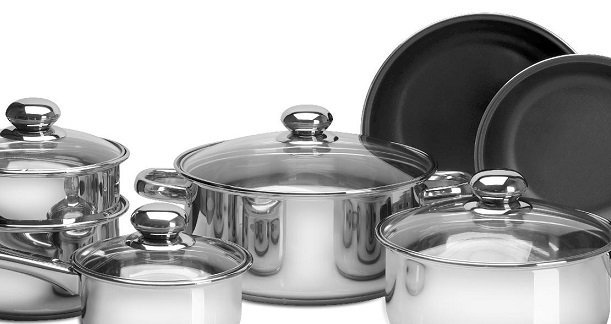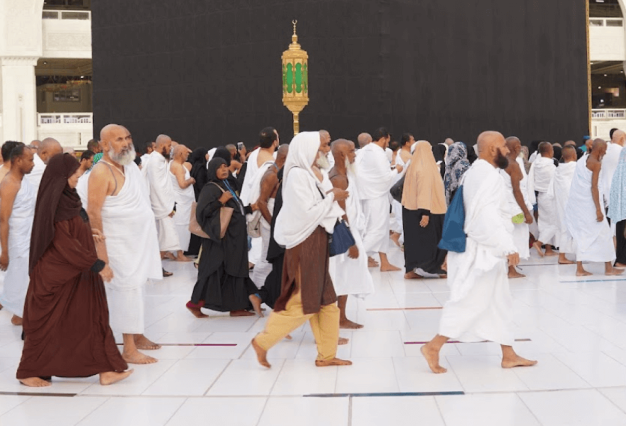Answered by Shaykh Mazhar Mahmood
Question:
I received a gift recently from an old friend which was a cast-iron skillet, this skillet may have been used to cook non-halal meats in the past. Would it be permissible to use the skillet after de-seasoning the pan and attempting to remove all the grease over a fire or would it be better to avoid using the pan at all?
Answer:
Allāh’s Messenger (peace and blessings upon him) taught his followers to coexist amongst one and all. In fact, when the Prophet Muḥammad (peace and blessings upon him) migrated to the city of Madīnah with his Companions, there were numerous religious practices prevalent there. Therefore, at times, the issue of utilizing vessels and utensils of adherents would arise.
With regards to the above-mentioned query, there are many narrations which attest to the fact that Allāh’s Messenger (peace and blessings upon him) and his Companions utilized vessels belonging to individuals of other faith groups for various purposes.
It is narrated in a ḥadīth that Allāh’s Messenger (peace and blessings upon him) performed wudhū (ritual ablution) from a vessel that a polytheist woman facilitated. (Irwā al-Ghalīl :36)
When Allāh’s Messenger (peace and blessings upon him) was brutally injured at the hills of Ṭā’if by rebellions, the sons of Rabī’ah (who were non Muslims) sent a bowl of grapes to the Prophet Muḥammad (peace and blessings upon him) with their Christian slave ‘Udās. Rabī’ah’s sons presented an oath of kinship to the Prophet Muḥammad (peace and blessings upon him) to consume the bunch of grapes. Coupled with Allāh’s Messenger’s (peace and blessings upon him) partaking the bunch of grapes from the bowl of a non Muslim, he had also won the heart of ‘Udās, who converted to Islām through the blessed teachings of Prophet Muḥammad (peace and blessings upon him). (See: Fiqh al-Sīrah: 126)
It has also been narrated, that Allāh’s Messenger (peace and blessings upon him) consumed food from a dish belonging to a Jewish woman. (See: Sīrah ibn al-Hishām)
As Islām spread, and the inhabitants of the Arabian Peninsula were adapting to the pristine teachings of the Prophet Muḥammad (peace and blessings upon him), Companions (may Allāh be pleased with them) who equally shared neighborhoods and cities with followers of other faith groups naturally had questions pertaining to the usage of vessels belonging to non Muslims. Abū Tha’labah al-Khushanī (may Allāh be pleased with him) was amongst those who enquired.
It is narrated on the authority of Abū Tha’labah al-Khushanī (may Allāh be pleased with him), that he asked Allāh’s Messenger (peace and blessings upon him), “O Prophet of Allāh, we live in an area inhabited by the People of the Book (i.e. Christians or Jews). May we utilize their utensils for cooking, and also drink out of their vessels?” Prophet Muḥammad (peace and blessings upon him) said: “If you do not possess other utensils/vessels, wash the one’s you find thoroughly with water (to ensure any inconsumable residue is washed away) and use them.” (Sunan al-Tirmidhī: 1797)
The purpose is to eliminate inedible properties. If this is achieved by the application of heat or fire to the appliance/utensil to burn off inedible matters, they may also be used. (See: Nūr al-Īdhāh)
(It should also be known, that utensils, vessels and appliances which are made out of gold and silver are not to be utilized for consuming foods or beverages.)
Majority of the scholars agree, based on the aforementioned narrations, that using the vessels of non Muslims is allowed provided that they are cleansed properly. This is the opinion of Imām Abū Ḥanīfah, Imām Mālik and Imām Shāfi’ī (may Allāh be pleased with them).
In conclusion, it is permitted to use a skillet, utensils, dishes or any appliances gifted to one by a non Muslim for one’s benefit.
Allāh Almighty Knows Best




